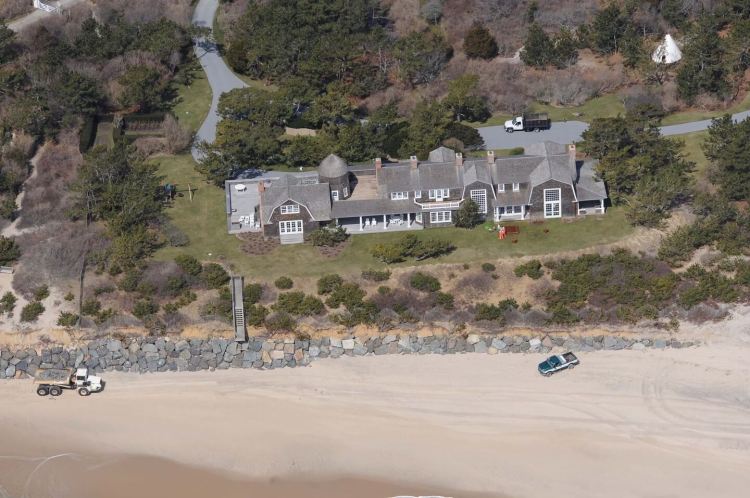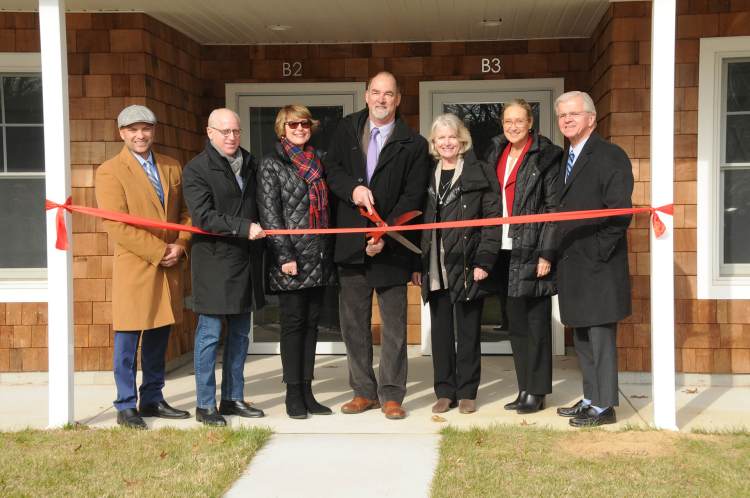Landlords of seasonal rentals in the Hamptons can, legally, collect security and advance payments thanks to a law that rights an unintended consequence of earlier housing legislation reforms.
Assemblyman Fred W. Thiele Jr. announced last week that legislation he wrote to clarify that certain seasonal rentals are excluded from the provisions regulating deposits and advances for residential dwelling units under the Housing Stability and Tenant Protection Act of 2019 (HSTPA), has officially been signed into law. The bill takes effect immediately.
In a statement, Thiele explains that it is common practice on the East End and in other vacation destinations to require a single payment for the entire term of the seasonal rental. “If the act were to be applied to seasonal use rentals, that practice would not be permitted,” the statement continues. “This new law will make clear that the provisions of the HSTPA relating to security and advances does not apply to rentals of registered seasonal use dwelling units.”
The HSTPA provided housing reforms intended to protect tenants in relation to permanent residential housing and was not intended to apply to seasonal rentals, Thiele says.
One provision in the HSTPA prohibited landlords from requiring a “deposit or advance” in excess of one month’s rent. Some argued that the limitation could also be applied to seasonal use tenancies. The State Attorney General, responsible for enforcing the law, did not offer an opinion on whether the act would apply to seasonal use rentals, but it nonetheless left landlords and rental agents in a quandary.
Thiele introduced the new bill in February to right the wrong.
There are some conditions exempting seasonal rentals from the HSTPA, however. The tenants of such rentals must have a primary residence to return to with that address listed in the lease. The seasonal rental also must be registered with the appropriate local government, county or state registry and cannot rented for more than 120 days in each calendar year.
Judi Desiderio, the CEO of Town & Country Real Estate, who wrote to Thiele, then Governor Andrew Cuomo and other lawmakers in February 2020 with her concerns about the issues the HSTPA caused. The new law still has flaws, she says, pointing to the rental registry requirement, which she says not every town has.
“That’s ridiculously limiting and unattainable for some,” she says, adding that Southampton Town has a rental permit, but no registry while East Hampton Town has a registry but no rental permit.
Thiele thanked Governor Kathy Hochul “for recognizing that these types of short-term tenancies require a different regulatory approach than permanent dwellings by signing this important legislation into law.”
The legislation was sponsored in the Senate by State Senator Brian Kavanagh. It passed both houses in June.
In December 2020, Thiele also fought to exclude seasonal rentals from the Emergency Eviction and Foreclosure Prevention Act. In July, he also voted against the Tenants Safe Harbor Act calling it “over-broad by including seasonal rentals utilized for vacation purposes, which were not primary residences.” It led, he said later that year, to well-documented cases of abuse on the East End.
“The exclusion of seasonal rentals from the Emergency Eviction and Foreclosure Prevention Act recognizes that these types of short-term tenancies require a different regulatory approach than permanent dwellings,” he said at the time.
Email tvecsey@danspapers.com with further comments, questions, or tips. Follow Behind The Hedges on Twitter, Instagram, and Facebook.





















